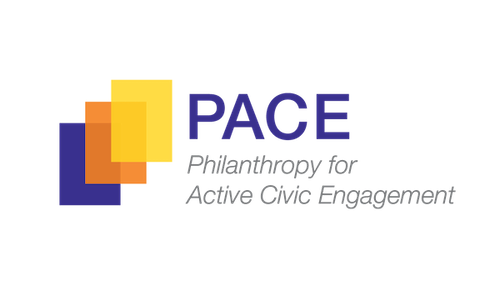Strengthening Civic Infrastructure
Faith communities play a unique and indispensable role in strengthening the civic infrastructure of our democracy. Through their deep connection to local communities and their commitment to service, faith communities are ideally positioned to build and sustain place-based civic infrastructure, serving as hubs for civic engagement and bridge-building. Furthermore, faith communities and faith-inspired organizations are often among the first to respond and provide the bulk of on-the-ground support in times of crisis, contributing directly and tangibly to the resilience of the communities in which they are located.

EXPLORE THE EVIDENCE
Building and sustaining place-based civic infrastructure
Faith communities have long been at the forefront of cultivating a strong sense of responsibility towards one’s community, as well as encouraging active participation in the democratic process. Through their teachings and practices, faith communities provide a framework for individuals to develop the skills and values necessary for engaged citizenship. America’s civic infrastructure is undergirded by a network of local, faith-based institutions that serve their communities in a multitude of ways. One need only look at the number of churches, mosques, synagogues, and other houses of worship that served as polling places in the 2022 elections to see the deep connections between America’s faith infrastructure and the functioning of our democracy. Religious infrastructure also plays a role in combating growing social isolation and building a healthy, thriving society. Particularly in small rural communities, where opportunities for connection can be significantly harder to access than in more densely populated regions, church buildings and events provide some of the only opportunities community members have to participate in large social gatherings and experience a sense of community and belonging.
Congregations, mosques, temples, and other religious gathering places are anchor civic institutions in communities. Their buildings are used as civic spaces. Their networks and communication channels offer broad access to the public, especially in places and among communities without robust alternatives provided by the government and other civic sources.
Religious and spiritual leaders and organizations have high levels of public trust compared to other sectors of American society.
Religious and spiritual leaders and organizations have high levels of public trust compared to other sectors of American society.
Many public service and educational institutions—hospitals, social service providers, educational institutions—were established by religious groups as an expression of their values. Often, they serve the broad general public and are not limited to adherents of their denominations or traditions.
Evidence that demonstrates faith’s impact on civic infrastructure
If you have evidence to add, please send it to us.
EXEMPLARS
Faith-inspired organizations that are contributing to civic infrastructure.
(* denotes FIAD partner)
Building resilience in times of public and democratic crisis
Faith communities and organizations play a vital role during moments of crisis, from disaster relief to moments of democratic instability. In times of need, houses of prayer often serve as a refuge, providing a safe space for those in vulnerable situations. Yet, their significance goes beyond the physical shelter they offer. Faith-based institutions have long invested in a relational infrastructure that can be rapidly and adeptly mobilized in times of crisis. With established grassroots networks, support systems, and communication channels, faith communities deliver a dependable and efficient response during times of political and environmental upheaval, earning those communities recognition as valued partners of the U.S. government and major nonprofits.
Religion and spirituality can offer reserves of strength, security, and resilience in times of crisis. Religious and spiritual leaders often play a role in helping their communities make sense of daily life in our nation.
Religious and spiritual leaders are skilled at conflict mitigation/mediation. Because of community trust, they are often called to serve as diplomatic messengers and peacekeepers.
Religious institutions have made investments in relationship infrastructure that can be quickly and nimbly deployed as needed. They can dependably access grassroots networks, support systems, and communication channels. They are also often connected to the decision-makers, elected officials, and immediate responders coordinating relief and recovery. Both in times of political crisis and in instances of natural disaster, the U.S. government and major NGOs routinely engage faith-based organizations as first responders.
Evidence that demonstrates faith’s role in building resilience in times of crisis
If you have evidence to add, please send it to us.
EXEMPLARS
Faith-inspired organizations that are contributing to building resilence.
(* denotes FIAD partner)
MAILING ADDRESS
611 Pennsylvania Ave SE, #372
Washington, DC 20003
